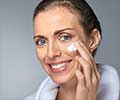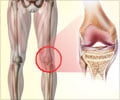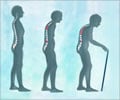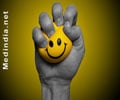Reduce Menopause Symptoms with Lifestyle Changes
In his book "What your doctor may not tell you about menopause", Dr. John R Lee, the internationally acknowledged expert in the field of Hormone Replacement Therapy (HRT) and hormone progesterone, says, "The unpleasant symptoms of menopause that some women suffer, such as hot flashes, vaginal dryness, and mood swings, are peculiar to industrialized cultures and, as far as I can tell, they are virtually unknown in agrarian cultures. In native cultures menopause tends to be a cause for quiet celebration, a time when a woman has completed her childbearing years and is moving into a deeper level of self-discovery and spiritual awareness. She is becoming a wise old woman. In these cultures menopausal women are looked up to and revered. They are sought out for advice and their opinions are heavily weighed in the decision-making process of the community. How strange that sounds to us! We know menopause as a death knell, the end of a woman’s sexuality, a descent into a dried-up and painful old age of arthritis and osteoporosis. How did this experience of menopause come to be? I believe it’s a combination of poor diet, unhealthy lifestyle, environmental pollutants, cultural attitudes, the incorrect use of synthetic hormones, and advertising."
Hormone Replacement Therapy (HRT), also known as Menopausal Hormone Therapy, or Estrogen Replacement Therapy (ERT) is a well established medical form of treatment for menopausal symptoms and it involves replenishing the depleting levels of vital hormones – estrogen and progesterone- in the body. HRT is generally prescribed to reduce the severity of menopausal symptoms. It also offers protection against heart diseases, osteoporosis and even dementia.
The hormonal levels in a woman’s body tend to fluctuate in the pre-menopausal years. Levels of progesterone and estrogen fall and this can give rise to many symptoms like hot flashes, mood swings, and urinary problems with some women complaining of dryness in the vagina. Women find it tough to cope when symptoms become severe.
Long term use of HRT is associated with a small increase in the incidence of breast cancer, heart disease,
If the HRT drugs do not suit you or if there is a reason that HRT is not safe for you, the good news is that some of the symptoms of menopause can be significantly reduced through
- Diet modification: Avoid caffeine, alcohol, and spicy food. Get adequate calcium and vitamin D in food or supplements to avoid being affected by osteoporosis later in life. Include soy foods in your diet. According to a review published in the journal JAMA, a sample group of postmenopausal women who were consuming 8.5 mg of soy protein per day showed lower chances of bone fracture and osteoporosis.
- Clothing: Dress lightly and in layers.
- Exercise Get plenty of exercise. Perform Kegel exercises everyday to strengthen the muscles of vagina and pelvis. Breathing exercises are helpful when you feel the hot flash coming on. Try slow deep breathing, say, six times per minute whenever a flash starts.
- Sex: Remain sexually active. You can use water-based lubricants during sexual intercourse. Talk about your sexual problems with your doctor.
- Relaxation: De-stressing has a positive influence on your well-being. Keep some time for yourself – read a book, take a long bath, enjoy a beauty care ritual, participate in a hobby or simply go for a walk. Try relaxation techniques such as yoga, meditation and tai-chi.
- Alternative therapies: Sometimes alternative therapies for stress relief such as massage, chiropractic therapy and acupuncture can help relieve menopause symptoms. A population based survey in Washington revealed that more than 76 percent of menopausal women used some form of alternative therapy for menopause symptom relief. The proportion of women who used it to manage menopause symptoms was 22.1 percent for any therapy, 9.1 percent for stress management, 13.1 percent for over-the-counter alternative remedies, 0.9 percent for chiropractic, 2.6 percent for massage therapy, 7.4 percent for dietary soy, 0.6 percent for acupuncture, 2.0 percent for naturopath or homeopath, and 1.2 percent for herbalists. Among women who used these therapies, 89 to 100 percent found them to be somewhat or very helpful.
Make healthy lifestyle choices, think positively, keep away from stress and sail through this phase of your life with minimal menopause symptoms.






















